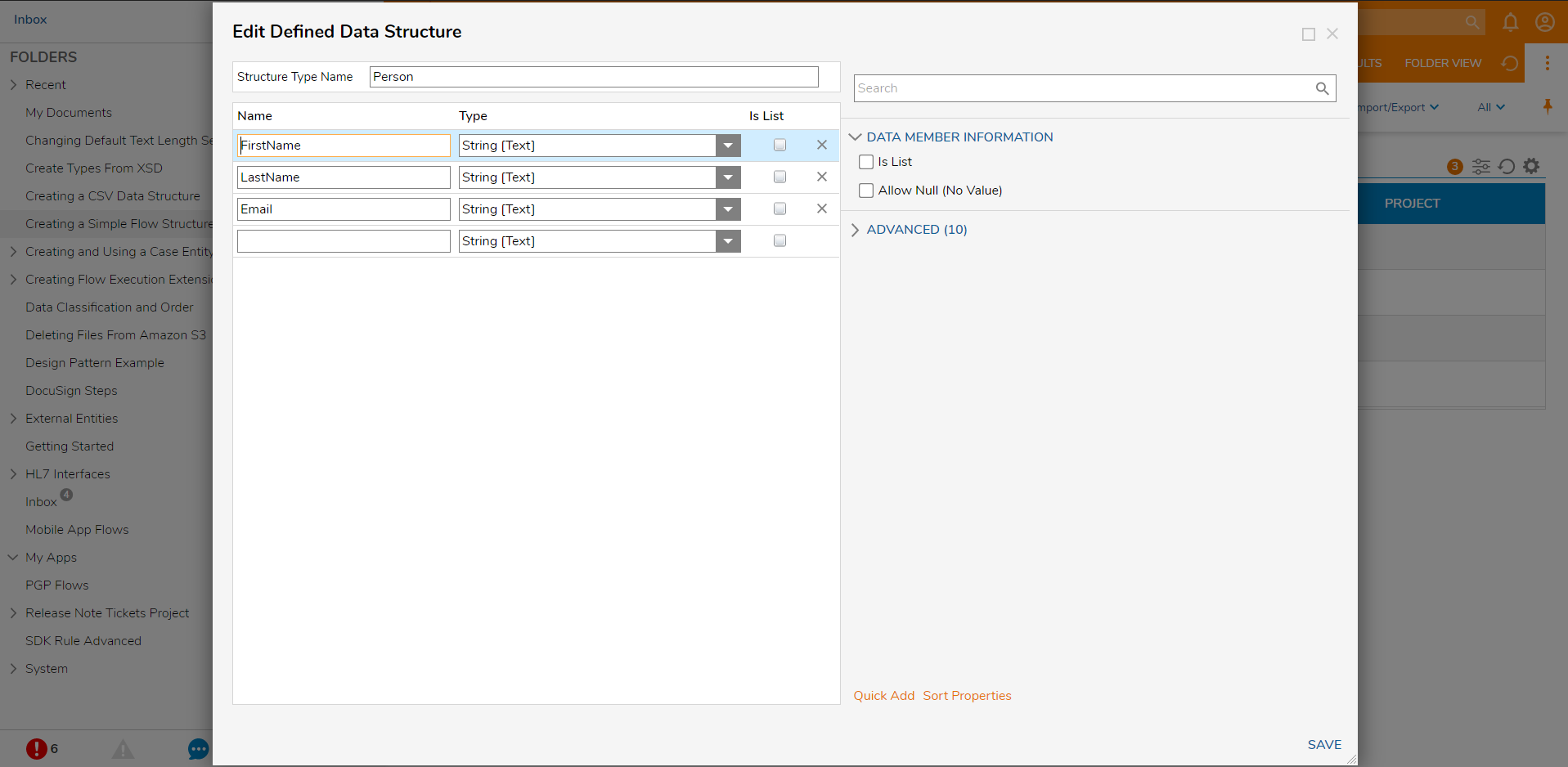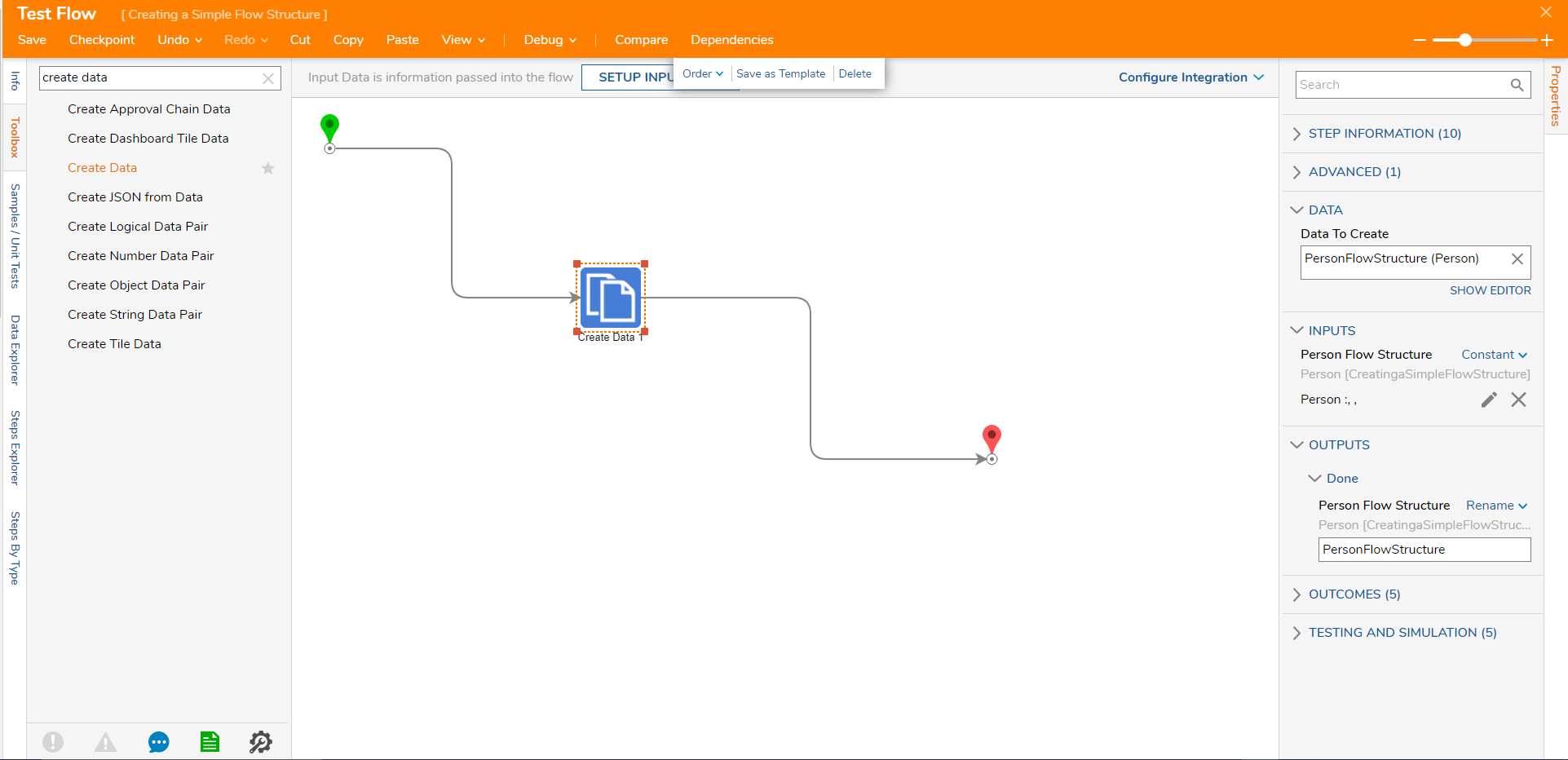Overview
| Data Structure Quick Summary | ||||||
|---|---|---|---|---|---|---|
| Complexity? | Performance Impact? | Saves to Database? | Configuration Folder? | Entity Framework? | Folder Behavior? | Process Tracking? |
| Low | Low | No | No | No | No | No |
The Flow Structure is used to organize and store data only in memory. It is not saved to the database. Flow Structures can NOT persist beyond the execution of the Flow in which it is used.
Creating The Data Structure In A Flow
- In a Designer Project, click CREATE DATATYPES/INTEGRATION on the top action bar.
- In the Structure Type Name, enter in a name and declare a name for the data fields to populate the structure along with their types. After the desired field are configured, click SAVE.

- Create a new Flow. Attach a Create Data step to the Start and End steps.
- On the Properties panel, click SHOW EDITOR. Define a variable name and select the Flow Structure as the TYPE.

Flow Structure Settings
| Setting Name | Description |
|---|---|
| Hide In Search | Hides the data type from appearing when being searched |
| Type Name Space | Creates the unique identifier for the Entity (namespace.typename) to generate the SQL table name for the Entity (namespace_typename) |
| Category Order | Allows data field categories to be organized by the Designer |
| Can Be Base Type | Allows the created type to be used as a super-class for sub-classes |
| Include Type Name In Description | This enables or disables the visibility of the Type namespace |
For further information on Data Structures, visit the Decisions Forum.